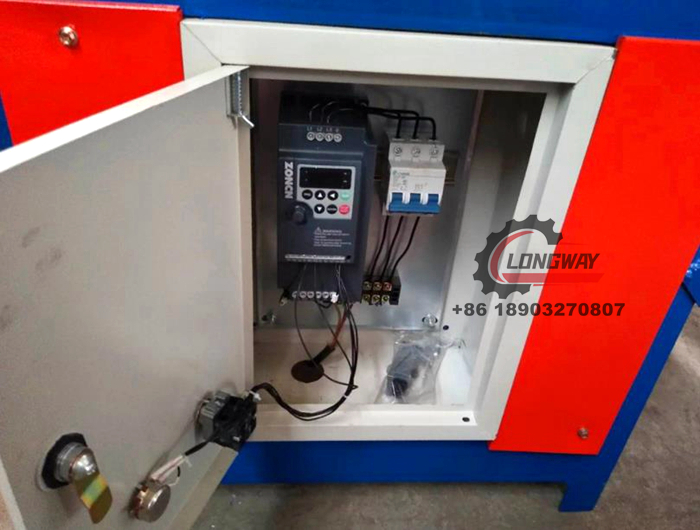Ridge Cap Zinc Roll Forming Machine Manufacturer for Durable Construction Solutions
Understanding the Ridge Cap Zinc Roll Forming Machine A Key to Efficient Metal Roofing Solutions
In the ever-evolving world of construction, the demand for durable and efficient roofing systems is on the rise. Among the various roofing solutions available, zinc roofs stand out for their longevity and aesthetic appeal. To meet this growing demand, innovative machinery such as the ridge cap zinc roll forming machine has gained significance, especially in factories specializing in metal roof manufacturing. This article delves into the intricacies of ridge cap zinc roll forming machines, their advantages, and their role in the production of high-quality roofing materials.
What is a Ridge Cap Zinc Roll Forming Machine?
A ridge cap zinc roll forming machine is specialized equipment designed to produce ridge caps for metal roofing systems. A ridge cap is a crucial component that covers the peak of a roof, providing both a decorative finish and essential protection against weather elements. The roll forming machine operates by taking flat strips of zinc or zinc-coated steel and transforming them through a series of rollers into the desired shape and profile of a ridge cap.
The process involves feeding the metal sheet into the machine, which continuously shapes and forms it as it passes through the roller stations. The result is a precisely manufactured ridge cap that can be directly used in roofing applications. With advancements in technology, these machines can now produce ridge caps at high speeds while maintaining consistent quality, making them an indispensable asset for roofing factories.
Advantages of Ridge Cap Zinc Roll Forming Machines
1. Efficiency and Speed One of the most significant benefits of using a ridge cap zinc roll forming machine is the speed at which it can produce finished products. In a factory setting, time is money; thus, a machine capable of producing high volumes in a timely manner greatly enhances productivity.
2. Customization The flexibility of roll forming machines allows manufacturers to produce ridge caps in various shapes and sizes. This customization is crucial, as different roofing styles and designs require specific ridge cap profiles. Factories can adjust the machine settings to create unique designs without the need for extensive retooling.
ridge cap zinc roll forming machine factory

3. Material Savings Zinc is a lightweight material with excellent corrosion resistance, conducive to modern roofing systems. The precision of the ridge cap zinc roll forming machine minimizes waste during the manufacturing process, leading to cost savings for manufacturers. Additionally, using zinc contributes to sustainability in construction, as it can be recycled indefinitely without loss of quality.
4. Enhanced Quality Control With automated systems, quality control becomes easier. Roll forming machines can be equipped with sensors and monitoring systems to ensure that each ridge cap produced meets strict quality standards. This reduces the likelihood of defects and ensures that the final product is reliable and durable.
5. Labor Cost Reduction Automation in manufacturing reduces the dependency on manual labor. Once set up, a roll forming machine can operate with minimal supervision, allowing factory workers to focus on other essential tasks, thereby optimizing labor costs.
Applications of Ridge Cap Zinc Roll Forming Machines
Ridge cap zinc roll forming machines are primarily utilized in roofing factories that specialize in producing metal roofing materials. These machines are essential for manufacturers catering to residential, commercial, and industrial buildings. Country-wide adoption of metal roofing systems due to their durability and weather resistance further amplifies the demand for ridge caps and thereby the machinery required for their production.
Conclusion
As the construction industry continues to evolve, the role of technology in enhancing production processes cannot be overstated. Ridge cap zinc roll forming machines symbolize innovation and efficiency, directly contributing to the quality of roofing solutions available in the market. By offering speed, customization, and superior quality control, these machines empower manufacturers to meet modern demands while maintaining sustainable practices. Investing in these machines is not just an operational decision, but also a strategic move towards advancing the industry as a whole. As we look to the future, the integration of technology in manufacturing will continue to shape the landscapes of construction, ensuring that we meet the challenges head-on with innovative solutions.
-
Roof Panel Machines: Buying Guide, Types, and PricingNewsJul.04, 2025
-
Purlin Machines: Types, Features, and Pricing GuideNewsJul.04, 2025
-
Metal Embossing Machines: Types, Applications, and Buying GuideNewsJul.04, 2025
-
Gutter Machines: Features, Types, and Cost BreakdownNewsJul.04, 2025
-
Cut to Length Line: Overview, Equipment, and Buying GuideNewsJul.04, 2025
-
Auto Stacker: Features, Applications, and Cost BreakdownNewsJul.04, 2025
-
Top Drywall Profile Machine Models for SaleNewsJun.05, 2025








